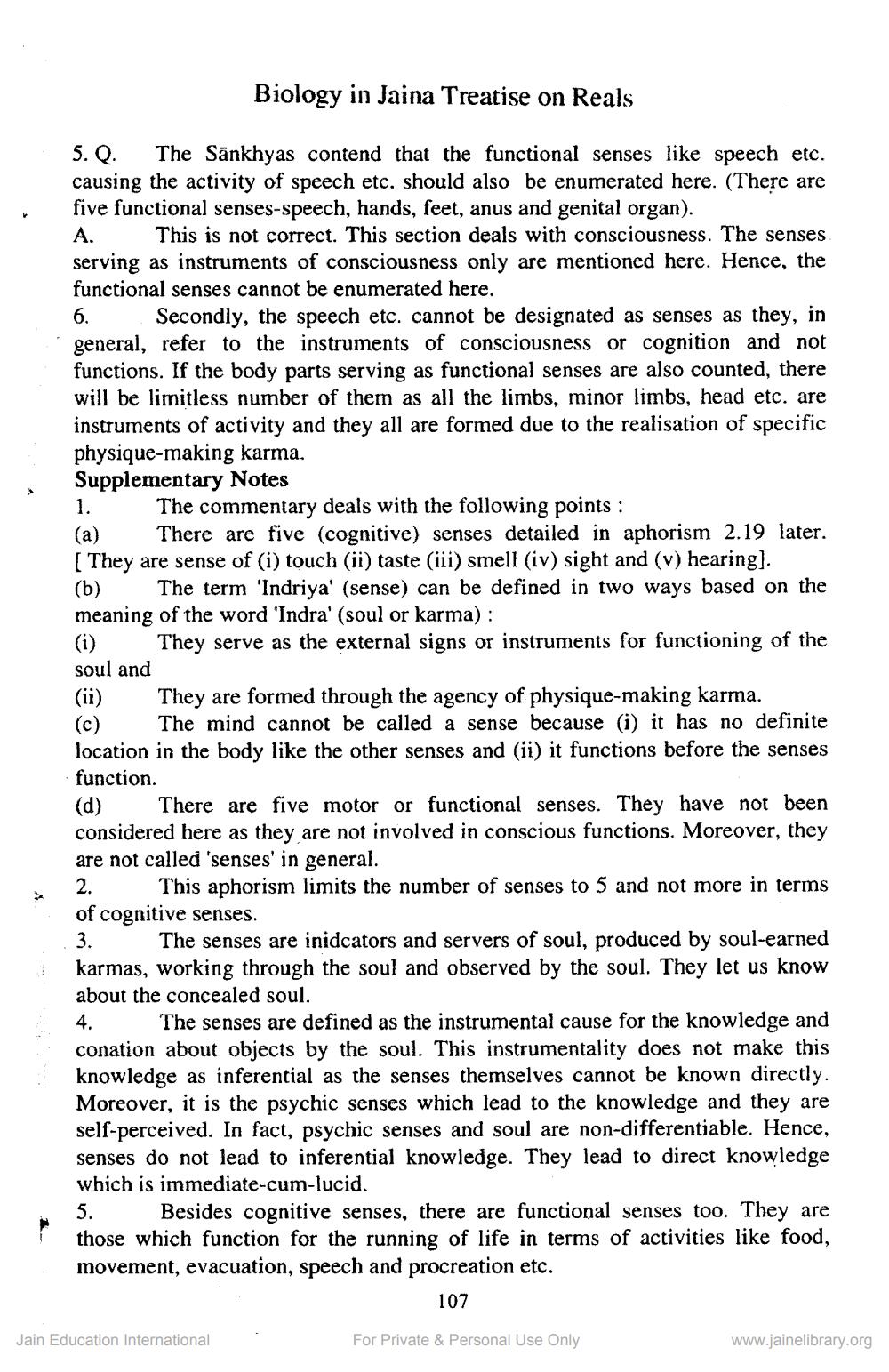________________
Biology in Jaina Treatise on Reals
5. Q. The Sankhyas contend that the functional senses like speech etc. causing the activity of speech etc. should also be enumerated here. (There are five functional senses-speech, hands, feet, anus and genital organ).
A. This is not correct. This section deals with consciousness. The senses serving as instruments of consciousness only are mentioned here. Hence, the functional senses cannot be enumerated here.
6.
Secondly, the speech etc. cannot be designated as senses as they, in general, refer to the instruments of consciousness or cognition and not functions. If the body parts serving as functional senses are also counted, there will be limitless number of them as all the limbs, minor limbs, head etc. are instruments of activity and they all are formed due to the realisation of specific physique-making karma. Supplementary Notes
1.
The commentary deals with the following points :
(a) There are five (cognitive) senses detailed in aphorism 2.19 later. [They are sense of (i) touch (ii) taste (iii) smell (iv) sight and (v) hearing]. (b) The term 'Indriya' (sense) can be defined in two ways based on the meaning of the word 'Indra' (soul or karma):
They serve as the external signs or instruments for functioning of the
(i)
soul and
(ii)
They are formed through the agency of physique-making karma. (c) The mind cannot be called a sense because (i) it has no definite location in the body like the other senses and (ii) it functions before the senses function.
(d) There are five motor or functional senses. They have not been considered here as they are not involved in conscious functions. Moreover, they are not called 'senses' in general.
2. This aphorism limits the number of senses to 5 and not more in terms of cognitive senses.
3. The senses are inidcators and servers of soul, produced by soul-earned karmas, working through the soul and observed by the soul. They let us know about the concealed soul.
4. The senses are defined as the instrumental cause for the knowledge and conation about objects by the soul. This instrumentality does not make this knowledge as inferential as the senses themselves cannot be known directly. Moreover, it is the psychic senses which lead to the knowledge and they are self-perceived. In fact, psychic senses and soul are non-differentiable. Hence, senses do not lead to inferential knowledge. They lead to direct knowledge which is immediate-cum-lucid.
5.
Besides cognitive senses, there are functional senses too. They are those which function for the running of life in terms of activities like food, movement, evacuation, speech and procreation etc.
107
For Private & Personal Use Only
Jain Education International
www.jainelibrary.org




